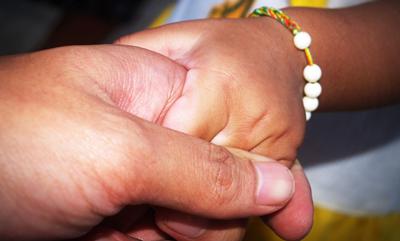Study to help family carers manage pain relief for seriously ill children

Researchers at the University of Southampton are launching a unique project to better understand how parents and carers deal with managing pain relief for children with life-threatening illnesses, and are seeking carers of children aged between 2–18 years old to help shape the research.
The PARAMOUNT study, funded by Sparks charity and Great Ormond Street Hospital Children’s Charity, aims to improve support for those giving medical care for pain to infants, children and young people in their own homes.
Families play a vital role in providing effective pain relief for seriously ill children so they can be cared for, and sadly in some cases so they can die, in familiar surroundings away from a hospice or hospital. However, this can put a strain on family carers, who often lack the specialist skills and confidence to balance the need for medication, with the side effects of the drugs.
This study aims to change this, and the research will help inform the development of an educational guide, designed to provide easily understood information about pain management to support families and carers through this most difficult time.
Chief Investigator and Professor of Paediatric Psychology, Christina Liossi, explains: “Often when caring for children at home, in order to follow clinicians’ medical advice, carers have to monitor pain symptoms, decide which of the prescribed medicines to give and judge how they are working – all without the benefit of special training. Even with varying levels of support from a hospice, hospital or GP surgery, this can be quite daunting and unsettling.”
Study Coordinator and Senior Research Fellow, Dr Simone Holley, continues: “Very little research has been conducted on this subject –despite families expressing anecdotally that they find it difficult to make decisions about when and how to administer pain medication outside of hospital. Online information about drugs and their side-effects is often complicated and sometimes contradictory. We want our research to help develop resources which are simpler and easier to understand.”
The research team would like to hear from family carers (looking after children between 2-18 years old) to learn about their experiences, as well as speak to children – giving them a ‘voice’ and the opportunity to influence and shape their care.
Anonymised data from the study will help with the development of the educational guide and in-turn, this will help carers and healthcare professionals to feel more confident and improve the use of pain relief in home settings. The researchers aim to follow this up with further research into the value of the guide.

